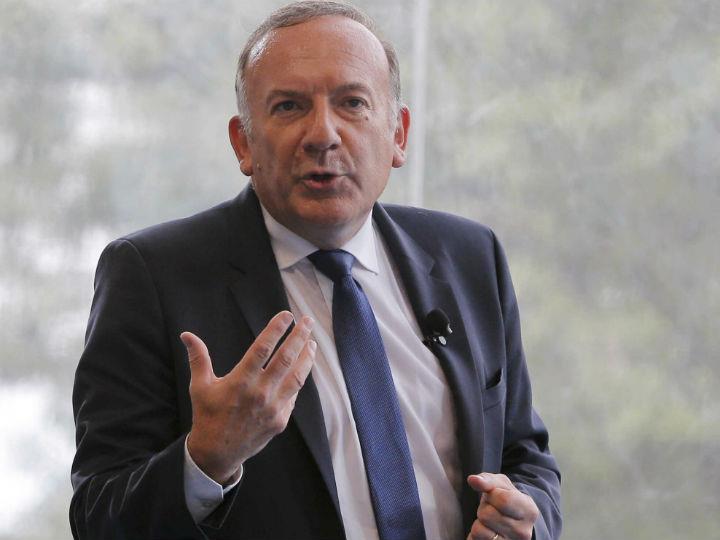by Frederic Simon
Europe’s largest employer’s association, BusinessEurope, has questioned “the value and credibility” of the economic analysis underpinning the EU’s proposed climate target plan for 2030, triggering an immediate backlash from pro-climate corporate groups.
The European Commission was over-optimistic when analysing the costs and benefits of raising the EU’s 2030 climate goals, BusinessEurope argues in a document criticising the EU executive’s climate policy.
The document questions Commission President Ursula von der Leyen’s assertion that tougher climate policies are the bloc’s new “growth strategy”, saying there are too many uncertainties in the Commission’s own impact assessment to make such a claim.
“Every core scenario” in the cost-benefit analysis accompanying the Commission’s 2030 climate target plan, “is conducted with pre-COVID-19 data and does not take (the pandemic’s) economic impacts into account,” the group argues.
“The sensitivity analysis is based on the assumption of a quick recovery, but what if the expected economic recovery takes longer than anticipated?” BusinessEurope asks. It points to the International Energy Agency’s latest world energy outlook, which explores the scenario of delayed recovery, finding that by 2030, the global economy is nearly 10% smaller than in a fast recovery scenario.
Moreover, models used in the analysis “have not been developed or discussed in any detail” and were not open for public scrutiny, BusinessEurope points out, saying this “weakens the value and credibility of the presented results for an informed decision making.”
“In our view, there needs to be a broader approach when implementing Europe’s recovery plan and to focus much more on how to turn the Green Deal into a real growth driver.”
BusinessEurope’s comments triggered immediate reactions from pro-climate corporations, which stepped forward in defence of the European Green Deal and denounced an attack on the EU’s climate policies.
In a statement, the CEO of Unilever, Alan Jope, said: “One of the most dangerous mindsets in the world is to set up a false dichotomy between sustainability and economic growth. The low carbon revolution will be a booming space for jobs. We strongly support the EU 2030 target – good for the environment, good for livelihoods, good for growth.”
The Prince of Wales Corporate Leaders Group, a pro-climate business lobby managed by the University of Cambridge, led the charge against BusinessEurope, saying: “There is a groundswell of opinion crossing business sectors and EU member states that identifies the Green Deal as Europe’s growth strategy and wants to see it implemented swiftly and effectively”.
“The evidence is clear that taking an ambitious approach to the climate transition and unlocking green investments can lead to better outcomes in terms of economic growth and jobs while managing the huge risks associated with climate change,” said Eliot Whittington, Europe director at the Corporate Leaders’ group.
The clash between rival corporate factions highlights divisions in the business community about the urgency to act on climate change.
Two years ago, a leaked internal memo from BusinessEurope revealed the association’s plans to “oppose” any increase in the EU’s climate ambition for 2030, by “using the usual arguments” that Europe cannot take action on its own. The Prince of Wales Corporate Leaders’ Group reacted by denouncing an “extreme lowest common denominator” that does not represent their views.
Yet, BusinessEurope is far more influential and representative. Through its member trade associations in 35 European countries, it represents 20 million companies. The Prince of Wales Corporate Leaders Group, by contrast, has only 16 full members.
Still, Lucie Mattera from climate think tank E3G said there was growing support from business groups for ambitious climate action, pointing to a letter from more than 170 European CEOs calling for a “clearly defined target to reduce domestic greenhouse gas emissions by at least 55% by 2030”.
“It seems that BusinessEurope is trying to poke holes in the impact assessment because they do not have a robust case against the inevitability of the overall direction of travel,” Mattera said, urging businesses to look at the big picture instead.
“The big picture is that Europe needs a strategy to transform its economy to deal with the existential threat of climate change, turn that transformation into an opportunity, and design the right set of tools and policies to make it socially fair. We can argue about digits after the comma, but is it what is at stake?”
“It would be more constructive if Business Europe engaged on what’s needed to shape and manage the green transition,” Mattera said.
*first published in: www.euractiv.com




 By: N. Peter Kramer
By: N. Peter Kramer

